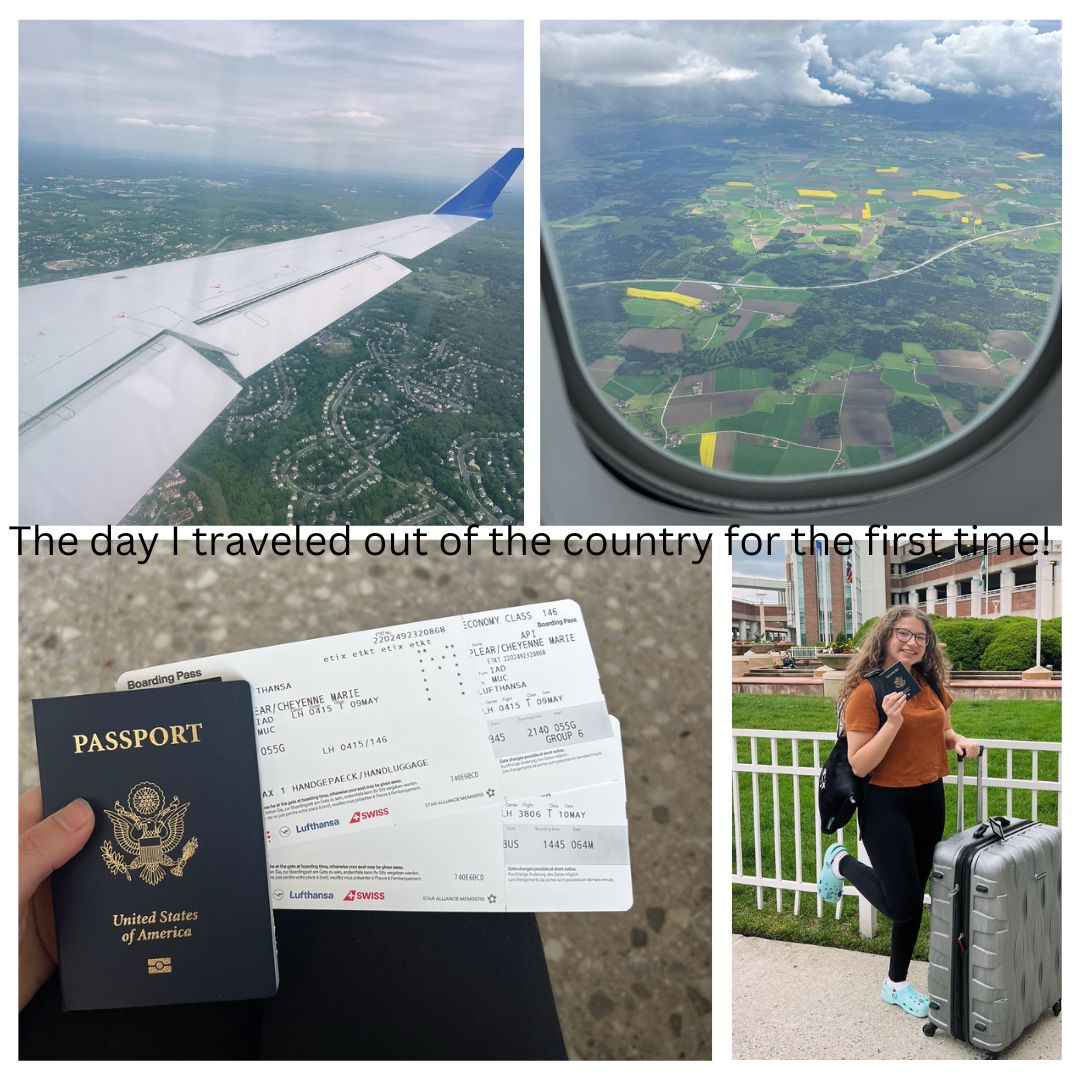
Culture Shock While Traveling Abroad
I have been in Germany for a week now, and I have witnessed a brand-new culture. With so many sites, people & a new society, culture shock has risen.
According to the University of Kansas, culture shock is when a person becomes aware of the differences or conflicts in values and customs between their home culture and their new culture. Many are familiar with the definition of culture shock, but what symptoms are associated with it? During the first week of my trip, I experienced disturbed sleep patterns, poor time management, decreased productivity, being homesick, and irritability, to name a few. It is important to note that culture shock is not a bad thing! It is essential to overcome to immerse yourself in a new place fully.
To combat culture shock, one must be aware of the process. To be completely transparent, I did not anticipate experiencing culture shock, as my study abroad program is only two weeks long. However, I have learned that the length of a trip does not correlate with developing culture shock. Nevertheless, I only recognized and accepted my culture shock five days later. Then I remembered my previous communication classes and how culture shock affects communication. My goal for this study abroad trip is to learn about another culture, immerse myself within it, and connect with the Germans. Therefore, experiencing culture shock creates explicit barriers in my conversations. So this was a critical obstacle I needed to overcome to achieve my goal!
After deep reflection within myself, utilizing my previous communication classes, and looking at this as a broader scope instead of the latter, I found four ways that helped me adapt in Germany:
1) Observation
2) Understanding with open-mindedness
3) Reflecting and adapting to the cultural norm.
According to Anthropologist Kalervo Oberg, there are four stages of culture shock: 1) honeymoon, 2) negotiation, 3) adjustment, and 4) adaptation.
The first stage is the honeymoon phase. When I arrived in Germany, I was beyond happy; the excitement was just as high when my nieces and nephews were born — a ton of joy filled my heart! I was in awe, and the people around me giggled at how happy I was about simple things like going on a train for the first time! Although I’m still highly enthusiastic about being in Germany, the honeymoon phase was about two days until I transitioned into the second phase, uncertainty, and doubtfulness.
Everything was brand new to me. While it was eye-opening, a new culture can be overwhelming. Simple things I overthought, such as what is the expected etiquette? What are their social norms? Every action I took was filled with doubt, worry & nerves. How do I get on the train? Is my German good enough to communicate with natives? I had to overcome this within myself, and my confidence increased externally. For example: In Germany, public transportation is vast! It’s easy to access, and everyone takes advantage of it. But I didn’t know their social norms. When arriving, I was pretty talkative. I wanted to have small talk with the natives, as I was excited and very sociable. However, I noticed a few distant reactions. Later, I looked around the train and was very doubtful.
I decided to take a few days and observe before interacting. This brought me to the third stage, adjustment. Observing took me about five days to grasp and feel fully confident. However, I am still people-watching!
I wanted to observe the interactions between the natives. I’m from a rural area in Virginia, and it’s very common to have small talk with the cashier. However, here that wasn’t my observation. There is no right or wrong way on social norms, and recognizing that was important to overcome this stage. Therefore, I decided to take a step back, and when others initiated small talk, I would engage, but only to their comfort level. This all was observing others and learning from past encounters.
That introduced me to the final stage, adaptability. To adapt to a new culture, I found that one must respect and adapt to their social norms. Obviously, to a certain extent, but take what is observed and put it into action. To fully connect with a culture and overcome culture shock, one must find your place in the culture. Being understanding of their boundaries and social norms without judgment is essential.
Furthermore, being open-minded and nonjudgemental is extremely helpful in transitioning into a new culture. Another tip that helped me is learning basic vocabulary to get around town. I have taken three years of German throughout college and some high school. However, brushing up on basic vocabulary helped quite a bit. There are so many resources online for learning languages, like apps or even just googling an article about it. It will help you find your place in society when you can understand and communicate in their native language!
To end this post, I wanted to share a few cultural differences that I learned and love!
1) Germany is very sustainable. There are no plastic ware, cups, etc, anywhere.
2) Germany’s bathrooms are typically on the “U” (underground) floor. An equivalent to the states, it would be basement level. The sign to look for is “WC,” which stands for wasserklosett (water closet). Additionally, bathrooms normally cost one euro to use.
3) NEVER be embarrassed to run to your train, tram, bus, or flight. Everyone is so understanding, and no one bats an eye!
4) When you order water, it comes in a water bottle, and they bring a glass cup to pour it in! To get stille water, you have to specify because they assume you want sparkling water since that is popular!
5) Bikes are super popular in Germany. There is a bike lane that only bikes are allowed in, and never step into that lane! It is a big no-no!

